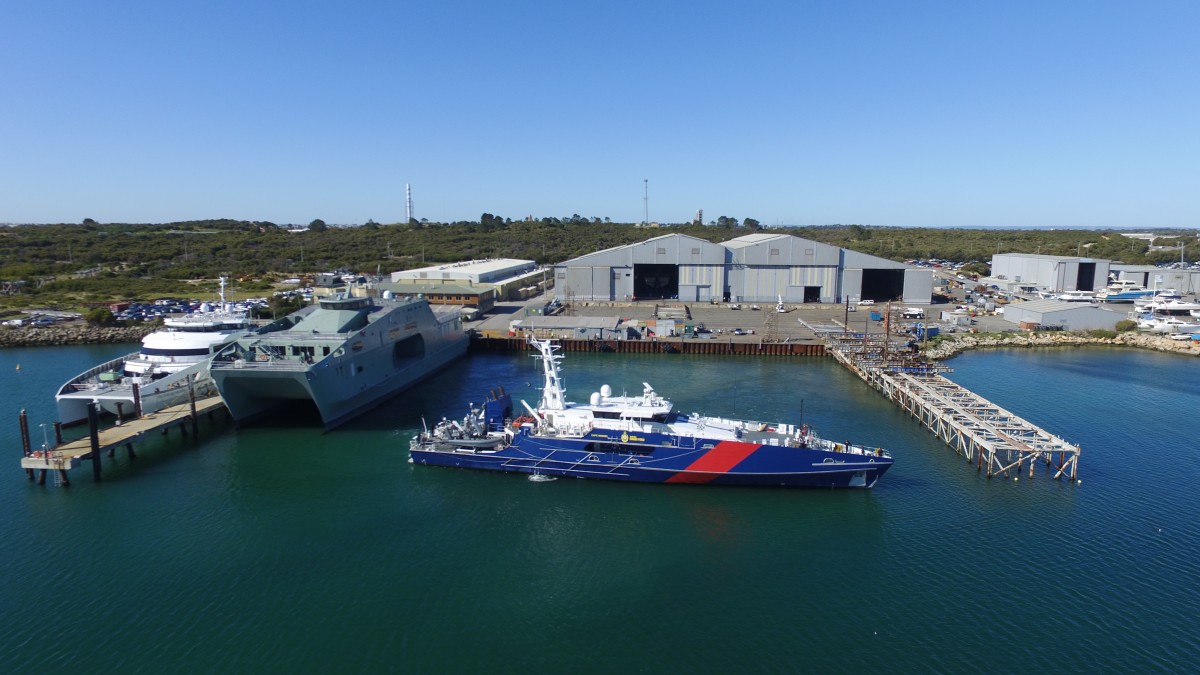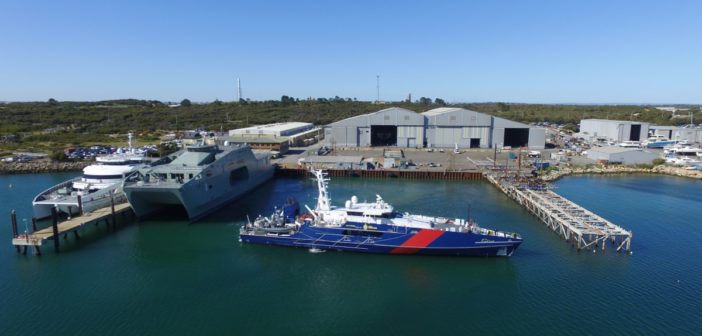
By Staff Writer.
The Australian Government will build a multibillion-dollar large-vessel dry berth facility at Henderson Shipyard south of Perth. The dry berth will support the construction and maintenance of large naval vessels and is the latest in a steady stream of big defence infrastructure spends.
Australian Naval Infrastructure will start work on the dry berth in 2023, with the $4.3 billion facility due to become operational in 2028. The Government wants to establish a continuous shipbuilding capability in Western Australia as part of the national naval shipbuilding enterprise.
Announcing the project in Perth on Tuesday, Prime Minister Scott Morrison reaffirmed the Government’s ongoing commitment to growing sovereign capabilities and boosting Australia’s naval shipbuilding capacities.
“Henderson, HMAS Stirling and Fleet Base West all form a key part of our maritime capability and our nation’s security, particularly given the strategic importance of the Indian Ocean, and will continue to do so for decades to come,” said the PM.
Tuesday’s announcement follows a recent commitment to build a new base on the east coast for Australia’s incoming nuclear-powered submarine and a pledge to grow to ADF workforce to more than 100,000 personnel by 2040.
The Government’s fresh interest in building defence capabilities comes as tensions continue to rise in the Indo-Pacific region. Australia has stepped in behind the US this week as that country warns it will unleash a raft of sanctions against China should it decide to supply weapons to Russia.
During a seven-hour meeting earlier this week in Rome between the US National Security Adviser Jake Sullivan and his Chinese counterpart, Yang Jiechi, the US voiced its concerns about China’s alignment with Russia.
Washington says Russia has asked China for military and economic aid to support its invasion of Ukraine. The US and its allies, including Australia, have unleashed unprecedented sanctions against Russia and have threatened to do the same to China should it choose to assist Russia.
But imposing sanctions on China would further alienate it from other major powers in the Indo-Pacific and elsewhere when those powers are attempting to curb China’s expansionism and military aggression in the region.
“We do have deep concerns about China’s alignment with Russia at this time,” says a White House senior administration official. “The National Security Advisor was direct about those concerns and the potential implications and consequences of certain actions.”
China is the world’s second-largest economy and a key manufacturer and supplier. Imposing sanctions on China similar to those imposed on Russia could have massive internal economic, social, and political repercussions for China.
China is Australia’s largest trading partner in goods and services, with two-way trade worth $245 billion in 2020. Nonetheless, the Australian Government is lining up behind the US Government on China’s growing relationship with Russia.
This week, Australia’s Finance Minister Simon Birmingham said Australia was willing to take sanctions against any country that supports Russia in ways that underpin Russian attacks on Ukraine.
“We will continue to do that in any and all ways in relation to actions that in any way support Russia’s assault on the Ukrainians,” the Minister said.
Image: Henderson Shipyard south of Perth






